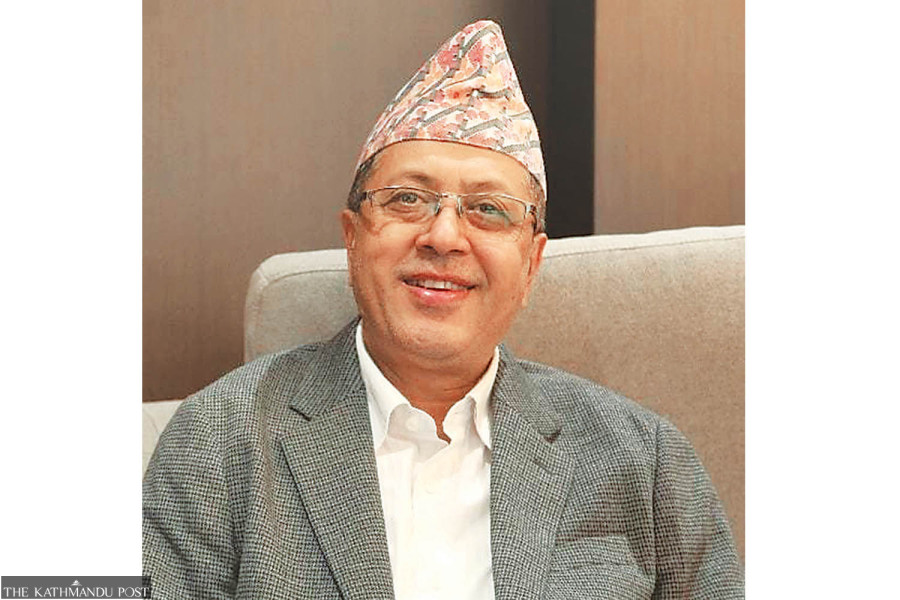Politics
Nepal can’t backtrack on BRI, says UML leader
Nepali leaders are only talking about loans and haven’t explored funding alternatives, Rajan Bhattarai says.
Post Report
CPN-UML standing committee member Rajan Bhattarai, who is also the head of the party's Department of Foreign Affairs, said that Nepal cannot withdraw from China's Belt and Road Initiative (BRI).
Speaking at a function organised by the Nepal Communist Party led by Netra Bikram Chand on “the reality and illusion on BRI” on Wednesday, the UML leader said that since Nepal has already signed the agreement seven years ago, it cannot backtrack.
Nepal and China signed the framework of the BRI in 2017, but not a single project has taken off under the initiative due to lack of clarity over the funding modality. The Nepali side prefers grants over loans to execute the projects under the BRI, but the Chinese side has yet to agree. There is also a proposal for a mixed funding model to execute the projects under the proposed BRI implementation plan.
Both sides are working to finalise the BRI implementation plan, but the investment modality remains the biggest concern for both sides.
“We are talking about the BRI, which we have signed with China. Since we have already put in our signatures, there is no possibility of reneging. China is a close neighbour and rising power, so we cannot backtrack from our past agreement,” said Bhattarai.
During the recent foreign secretary level talks between Nepal and China on June 25, the implementation plan for the BRI was set to be signed, but due to lack of clarity over the funding model, the signing was deferred.
With the formation of the new government in Kathmandu led by CPN-UML chair KP Sharma Oli, the issue of BRI has come to the forefront again.
The political community is sharply divided over the funding model for BRI projects. The previous government of Pushpa Kamal Dahal also tried to finalise and sign the implementation plan of the BRI, but it could not succeed.
“I came to know that there was a dispute within Dahal’s Cabinet when the prime minister wanted to push the BRI implementation plan,” said Bhattarai without naming who created the dispute inside the government. Besides the UML, the coalition government included the CPN (Maoist Centre), Rastriya Swatantra Party, CPN (Unified Socialist), and Janata Samajbadi Party led by the Ashok Rai faction.
“Do not take the BRI lightly. When the Dahal government tried to push the BRI, we came to know that it caused a dispute inside the Cabinet. So don’t treat the BRI as a joke,” said Bhattarai. “China has proposed the implementation plan, but we are hesitant to sign it.”
Nepal should seek assistance from all sides and from neighbours, said Bhattarai, who served as foreign relations adviser to Prime Minister Oli during his previous term. “We have received economic assistance from India, so there is no reason not to accept assistance from China.”
"The BRI agreement was signed seven years ago, but now no responsible party, individual or power can refuse it. In this context, we must move forward with it. The BRI is a project, but we are only talking about loans and have not explored alternatives. This could be due to a lack of understanding or lack of willingness to understand it," he said.
Also, Chand, Bhattarai, Maoist Centre’s General Secretary Dev Gurung, and former ambassador to China Leelamani Poudyal, among others spoke on the occasion, where they stressed the importance of implementing the BRI in Nepal.




 8.22°C Kathmandu
8.22°C Kathmandu














